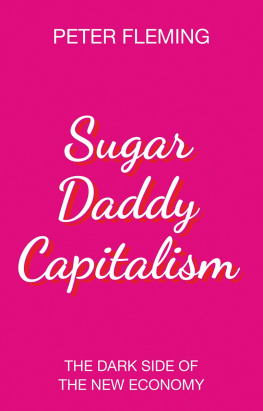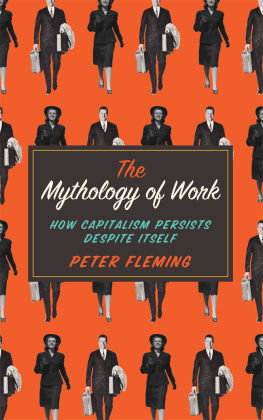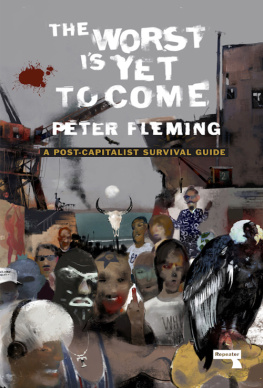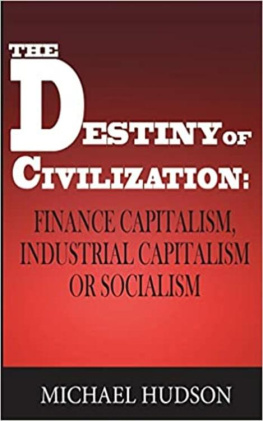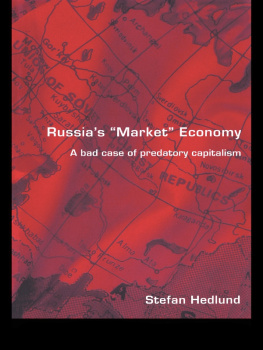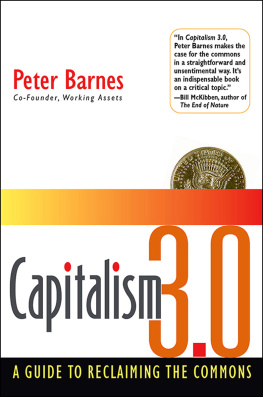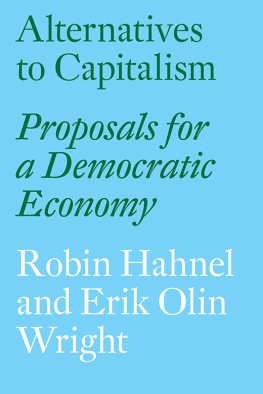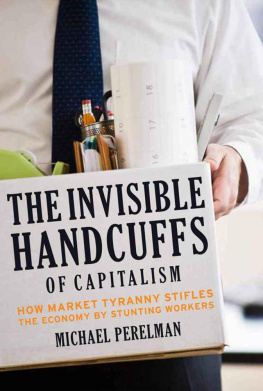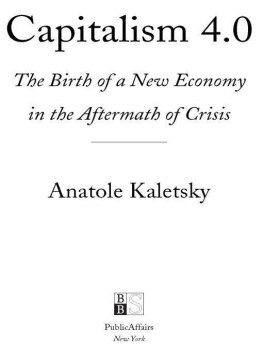Contents
Guide
Pages

Sugar Daddy Capitalism
The Dark Side of the New Economy
Peter Fleming
polity
Copyright Peter Fleming 2019
The right of Peter Fleming to be identified as Author of this Work has been asserted in accordance with the UK Copyright, Designs and Patents Act 1988.
First published in 2019 by Polity Press
Polity Press
65 Bridge Street
Cambridge CB2 1UR, UK
Polity Press
101 Station Landing
Suite 300
Medford, MA 02155, USA
All rights reserved. Except for the quotation of short passages for the purpose of criticism and review, no part of this publication may be reproduced, stored in a retrieval system or transmitted, in any form or by any means, electronic, mechanical, photocopying, recording or otherwise, without the prior permission of the publisher.
ISBN-13: 978-1-5095-2823-3
A catalogue record for this book is available from the British Library.
The publisher has used its best endeavours to ensure that the URLs for external websites referred to in this book are correct and active at the time of going to press. However, the publisher has no responsibility for the websites and can make no guarantee that a site will remain live or that the content is or will remain appropriate.
Every effort has been made to trace all copyright holders, but if any have been overlooked the publisher will be pleased to include any necessary credits in any subsequent reprint or edition.
For further information on Polity, visit our website: politybooks.com
Introduction
The Economics of Sleaze
In October 2017, Hollywood mogul Harvey Weinstein was embroiled in a remarkable scandal that would have far-reaching consequences. It was alleged that for many years hed abused his considerable power by sexually harassing and assaulting young women. In subsequent weeks the scandal would significantly widen, with iconic actors and directors accused of similar behaviour.
Most focused on Weinsteins louche character, casting the issue in strictly moral terms. Other commentators, however, suggested we place his predation in an economic context, one that is conducive of such behaviour.
Regardless, it didnt take long for the world to find out what was going on. The most creepy revelation was about Weinsteins notorious business meetings. He would have an assistant invite young women to a hotel bar on the pretence of a job opportunity. Soon theyd be in his private room. Finally Weinstein would be standing there in a bathrobe demanding a massage. One victim recalls her business meeting with the film producer. The description is interesting because it foregrounds the complex entanglement of career advancement, sleaze and power:
I, too, went to the meeting thinking that perhaps my entire life was about to change for the better. I, too, was asked to meet him in a hotel bar. I, too, met a young, female assistant there who said the meeting had been moved upstairs to his suite because he was a very busy man. I, too, felt my guard go up but was calmed by the presence of another woman my age beside me. I, too, felt terror in the pit of my stomach when that young woman left the room and I was suddenly alone with him. I, too, was asked if I wanted a massage, champagne, strawberries. I, too, sat in that chair paralyzed by mounting fear when he suggested we shower together. What could I do? How not to offend this man, this gatekeeper, who could anoint or destroy me?
The scandal soon rocked other institutions far away from Hollywood, including the Houses of Parliament in London, as women told their own stories during the #Me Too campaign. They have few protections like those of regular workers and are basically on their own. Finally, there is what I call the neoliberal knockout punch in this regard: if workers dont like any of this, then no ones pointing a gun at their head. Theyre always free to leave.
Penis Captivus
This book is not really about sexual harassment. But these disturbing cases do help capture a broader shift in Western economies that I want to explore: namely, deformalization, whereby public officialdom and regulatory protection are absent in the business world. The deformalization of Western capitalism is a delayed and largely unanticipated outcome of the neoliberal revolution masterminded by neoclassical economists, particularly F. A. Hayek and Milton Friedman of the Chicago School.
This loose group of scholars and academic activists didnt agree on all matters (Hayek challenged Friedman on monetary policy, for example). But they did share one dream. In an ideal society everyone would interact on a strictly private and personal basis. Money and self-interest would be the only universal principles permitted, with governments coming into the picture only as a last resort. Hence their undivided love of capitalism.
Margaret Thatcher and Ronald Reagan were so bewitched by the Chicago School that they made it their life mission to liberate capitalism from the shackles of big government. Business can regulate itself; private-market individualism represents the ultimate pinnacle of personal freedom; we no longer need governmental standards, labour laws or unions; pay rates and contractual terms/conditions are a private matter, negotiated behind closed doors between individuals. As long as its legal, anything goes. It is little wonder that Harvey Weinstein soon makes an appearance to exploit the grey zones of this new economic universe.
Informality isnt bad per se, of course. Some of the most progressive and spontaneously cooperative gestures have emerged outside the state and big business. But I want to explore deformalization specifically in relation to market individualism. Its being disseminated everywhere. How exactly did the cool rationalization of daily life under neoliberal capitalism end up intersecting with a reliance on some all-too-human power relationships, many of which are frighteningly arbitrary and contingent in nature?
On the surface, the ideas promoted by the Chicago School seem distant from the murky and underhand world of Weinstein and his backroom deals. Hayek and Friedman believed that capitalism unbarred would lead to a fairer society because our lives would be shaped by: (a) individual merit on the one hand, and (b) cold cash objectivity on the other. The economy could finally be rid of partiality and bias because the price mechanism has little respect for tradition, family connections or personal history. Whether youre black or white isnt important green is the only colour that counts. Neoliberal thinkers loved the idea. Quantity or how much? ought to be the only bond connecting people, not quality or who are you? Hayek had such faith in the notion that he declared money to be mans greatest invention for obtaining liberty. If society was rebuilt around this tenet, then wed all soon be rich micro-entrepreneurs, free to tailor our working lives to individual taste rather than be handcuffed to global standards imposed by trade unions and government.
This is all fantasy, of course. Thats why reading Hayeks The Road to Serfdom or The Constitution of Liberty today is like encountering a work of fiction given how abstract its assumptions are. There are no real people involved. This is particularly so regarding its strident individualism, which has always been a dubious part of the mythology of capitalism. Hayek pursues it reductio ad absurdum and no society can function that way. Moreover, we now know that capitalist economies cant do without the state, since so-called free trade requires a thick rulebook and governmental protection for big business interests. Indeed, if a welfare state still exists, its geared towards helping corporations rather than those most in need.

